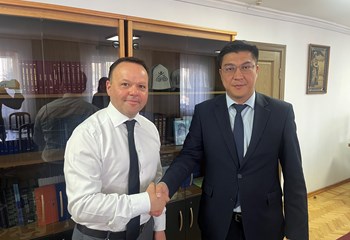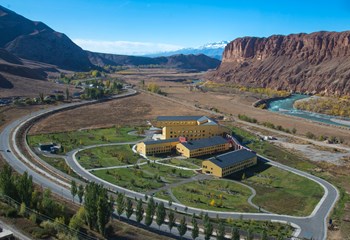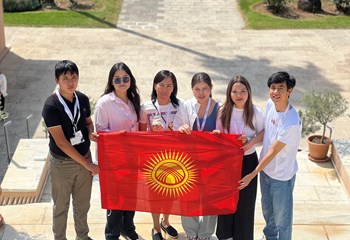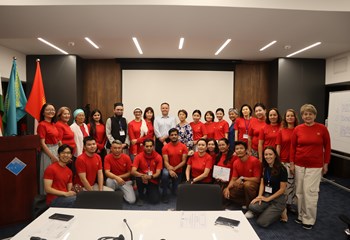
CSI’s Regional Forum “Civil Society at the Crossroads” Convenes Key Stakeholders in Almaty
The Civil Society Initiative (CSI) at the University of Central Asia hosted the Regional Forum Civil Society at the Crossroads: Challenges, Strategies, and Innovations in Almaty, Kazakhstan. Gathering around 80 participants from nine countries – including Kyrgyzstan, Kazakhstan, Tajikistan, Uzbekistan, as well as Austria, India, Georgia, the Netherlands and South Korea – the forum brought together a rich tapestry of voices: civil society practitioners, scholars, journalists, youth leaders, entrepreneurs and major development partners such as the European Union, World Bank, Swiss Agency for Development and Cooperation (SDC), and the United Nations Institute for Training and Research (UNITAR).
The forum served as an important regional platform for dialogue during a time of significant global and local change. In the context of complex and interrelated social, political, economic, and environmental developments, participants explored the evolving role and future of civil society in Central Asia. Through panel discussions, interactive group work and knowledge-sharing exercises, the forum spotlighted how civil society actors can remain resilient, relevant and transformative.
Bermet Ubaidillaeva, Gender Mainstreaming Specialist at the United Nations Development Programme (UNDP) in Kyrgyzstan, shared her experience:
“The forum provided a valuable platform to discuss key issues faced by women’s organisations in the development of Central Asian countries. I especially appreciated the topic of digital security – the threats posed, on one hand, by the advancement of digital technologies, and on the other, the risks to individual digital safety. There are also serious concerns about gender-based violence related to online activity. Participants were able to examine the current situation, raise their awareness and outline future plans for the work of civil society organisations.”
Discussions focused on how civil society can adapt to changing conditions, address challenges related to information integrity, promote inclusive leadership, and strengthen collaboration across sectors to respond to evolving regional needs. Particular emphasis was placed on the power of knowledge, media, technology and socially responsible business in enabling civic innovation and deepening citizen engagement.
In addition to thematic panels, the forum featured a team-building session, a creative quiz and co-creation exercises that fostered trust, collaboration and shared vision. These participatory elements allowed diverse actors to connect across borders and sectors, envisioning new pathways for civic transformation.
The forum concluded with the presentation of jointly developed recommendations for regional cooperation and civil society strengthening. Participants reaffirmed their commitment to inclusive, transparent and future-ready civic ecosystems – able to respond to both immediate challenges and long-term societal shifts.
This landmark event was part of the Advancing Gender Equality through Civil Society (AGECS) project, supported by the International Development Research Centre (IDRC), Canada, and underscored the critical role of inclusive dialogue and collaboration in shaping a more resilient civil society across Central Asia and beyond.

